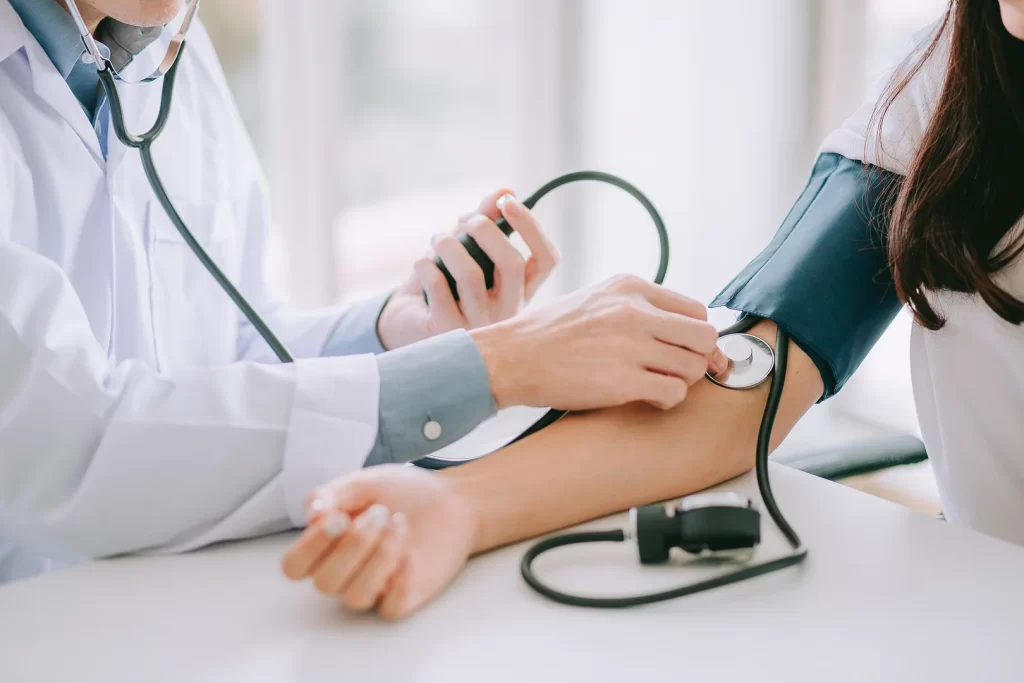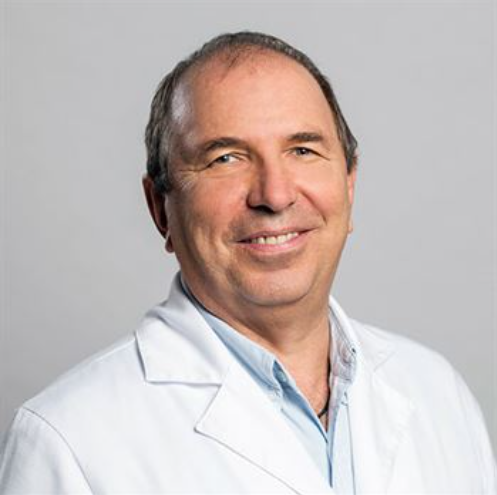News / Post Page
Cardiovascular diseases
The health of the cardiovascular system is key to maintaining quality of life, as it provides the body with the nutrients it needs to live. That's why it's important to look out for cardiovascular disease at the first symptoms to prevent bigger problems. Be it high blood pressure, heart rhythm problems or serious heart disease, at the Calendula Clinic experienced professionals to treat your heart problems. Make an appointment for a cardiology test today!

Problems of the cardiovascular system treated at the Calendula Clinic
Heart problems are no longer just affecting the elderly - they are also affecting more and more young people. A sedentary, sedentary lifestyle, poor dietary habits and genetic predisposition can all contribute to the development of cardiovascular disease. Cardiologists at the Calendula Clinic have already found solutions to countless patients' problems.
Coronary heart disease (CHD)
Coronary artery disease can include several heart problems, but its name is more of a catch-all term, indicating the problem it causes: damage to the coronary arteries of the heart reduces the blood supply to the heart muscle, which in turn affects the healthy functioning of the heart.
A myocardial infarction is a form of coronary heart disease, most commonly associated with sharp pain behind the sternum, coughing and shortness of breath. It is caused by long-standing high blood pressure, stress and overwork.
Arteriosclerosis (atherosclerosis)
Atherosclerosis is the hardening and narrowing of the walls of the arteries, caused by the deposition of cholesterol and fats. These deposits block blood flow, reducing blood supply to tissues and organs. Long-lasting deposits can later lead to heart attack or even stroke. The disease often develops slowly and lifestyle and diet play a major role in its development. Without treatment, serious circulatory problems can develop.
Heart rhythm disturbance (arrhythmia)
Arrhythmia is a disturbance in the normal rhythm of the heart, in which the heart beats may be too fast, too slow or irregular. It is often caused by an abnormal electrical impulse in the heart, which disrupts the heartbeat. The arrhythmia can present with a variety of symptoms, including dizziness, chest pain, palpitations, shortness of breath or even loss of consciousness. In severe cases, arrhythmia can be complicated by a heart attack or stroke.
High blood pressure (hypertension)
Hypertension is a persistent increase in the pressure in the blood vessels that can pose a serious long-term health risk. It can be caused by genetic predisposition, physical inactivity, unhealthy diet, stress or excessive salt intake. Hypertension often remains asymptomatic for a long time, but can also cause headaches, dizziness, visual disturbances, tinnitus or nosebleeds. Left untreated, it can lead to cardiovascular disease, heart attack, stroke or kidney failure.
Low blood pressure (hypotension)
Low blood pressure occurs when blood pressure falls below 90/60 mm Hg. Although less dangerous than hypertension, it can still cause unpleasant symptoms such as dizziness, fatigue, weakness and a tendency to faint. Low blood pressure causes organs and tissues to receive less oxygen, which can reduce quality of life and make daily life impossible.
What are the symptoms of heart disease?
Symptoms of cardiovascular disease are varied and can occur throughout the body, as the heart supplies fresh oxygen to the whole body. The following symptoms may be worth considering a cardiological examination:
- shortness of breath during physical exertion or at rest
- chest pain or tightness
- undue tiredness and weakness
- heart rhythm disturbances (irregular heartbeat)
- swelling of the feet or ankles (oedema)
- dizziness

What cardiology tests are performed at the Calendula Clinic?
At the Calendula Clinic, a range of cardiology tests are available for cardiovascular problems.
Electrocardiogram (ECG test)
An ECG test consists of measuring the electrical activity of the heart, which provides information about heart rhythm and possible myocardial damage.
Blood pressure check
In the case of low or high blood pressure, it is recommended that blood pressure is measured continuously over a period of time to see if there are any deviations from normal.
Ultrasound of lower limb blood vessels and arteries
An ultrasound scan of the limbs can be used to check the condition of the blood flow and blood vessels in the limbs.
Personalised treatment at the Calendula Clinic
At the Calendula Clinic for the treatment of cardiovascular problems develop a personalised treatment programme, which takes into account your condition, medical history and needs. The holistic approach of Ayurveda is not only to relieve symptoms, but also focus on tackling the root causes. The health programmes combine several types of therapy.
The aim is for the patient to leave the clinic feeling:
- strengthen your heart muscle and arteries
- normalises blood circulation and blood flow in the blood vessels
- improve your quality of life, making everyday challenges easier
- reduce the risk of complications of cardiovascular disease (including atherosclerosis, myocardial infarction and stroke)
- if you have undergone surgery, you have a full recovery
These results are achieved through various therapeutic treatments:
- Massages and oil treatments, which improve circulation, reduce stress and relieve strain on the heart.
- Specialists are specialised doctors, a diet that supports heart health which helps prevent atherosclerosis and maintain optimal cholesterol levels.
- Breathing exercises and meditation, which are used to reduce stress, regulate blood pressure and stabilise heart rhythm.
- Detoxification treatments, which help cleanse the body of accumulated toxins and contribute to cardiovascular problems.
Feedback from our patients
With a grateful heart I thank you for the past three weeks! Thank you for your professionalism, humanity, help and empathy. Thank you for all the smiles and encouragement, which have contributed greatly to my recovery.
☆ ☆ ☆ ☆ ☆
Mrs Edit Lénárt
Dear Chief Medical Officer! Thank you very much for what you did for me. I feel cured and I have you and your kind staff to thank for that! I always think of you with gratitude and love!
☆ ☆ ☆ ☆ ☆
Margit Fodor J.
What a 3 weeks it has been! The clinic is beautiful, the nurses and the therapists are very kind and really professional. The professionalism and humanity of the doctors helped me a lot to start on the road to recovery! They probably saved my life too, I am thankful to fate that I found you!
☆ ☆ ☆ ☆ ☆
Krisztina Rápolti
Frequently Asked Questions
How much does a cardiology test cost?
The prices for cardiology tests are as follows:
- Blood pressure monitoring 12.750 Ft
- ECG 12.160 Ft
- Lower limb venous DOPPLER / limb 19.380 Ft
- Lower limb arterial DOPPLER / limb 19.380 Ft
- Venous/arterial DOPPLER ultrasound of both limbs 30.400 Ft
How much does treatment at the Calendula Clinic cost?
Because patients with cardiovascular problems have different complaints and medical histories, the content and length of treatment is tailored to the individual. Treatment programmes are tailored to individual needs. A detailed quotation is provided during the initial consultation. Our prices include some diagnostic tests, the treatment programme, ongoing monitoring and meals. Accommodation is extra, depending on the type of treatment chosen, but treatments can also be provided on an outpatient basis with an inpatient admission.
Please coordinate by phone or in writing with our staff.
How can I book an appointment at the clinic?
Date and time book by phone or in writing by clicking on the button below. Our staff will be happy to answer any questions and help you with your booking.
How long does a treatment programme last?
The duration of the treatment programmes depends on the individual needs of the patient and the existing heart problem or circulatory disorder. They can usually range from a few days to two to three weeks, depending on the underlying condition and the treatment options available.
Should I have a consultation first or can I come straight to the clinic?
You can be treated without a prior consultation, but in the case of cardiovascular problems, a cardiological examination is always recommended.
If you have a booking at our clinic but have not yet had a consultation, you can discuss your treatment needs with our doctors on the day of your arrival, during your first visit, and they can decide together on the therapy depending on your health.
What happens at the first consultation?
During your initial consultation, you will have a detailed discussion and cardiological examination, where our doctors will thoroughly assess your condition and health needs. An individual treatment plan will then be drawn up for you, including any necessary therapies.

We care about the health of your heart
If you are experiencing symptoms of heart disease or have a pre-existing condition, don't wait any longer and make an appointment for a medical consultation! At Calendula Clinic, countless patients have experienced the joy of healing, let us make you next.
Thank you!
Your reservation request has been successfully recorded!
Our colleagues will contact you soon!


